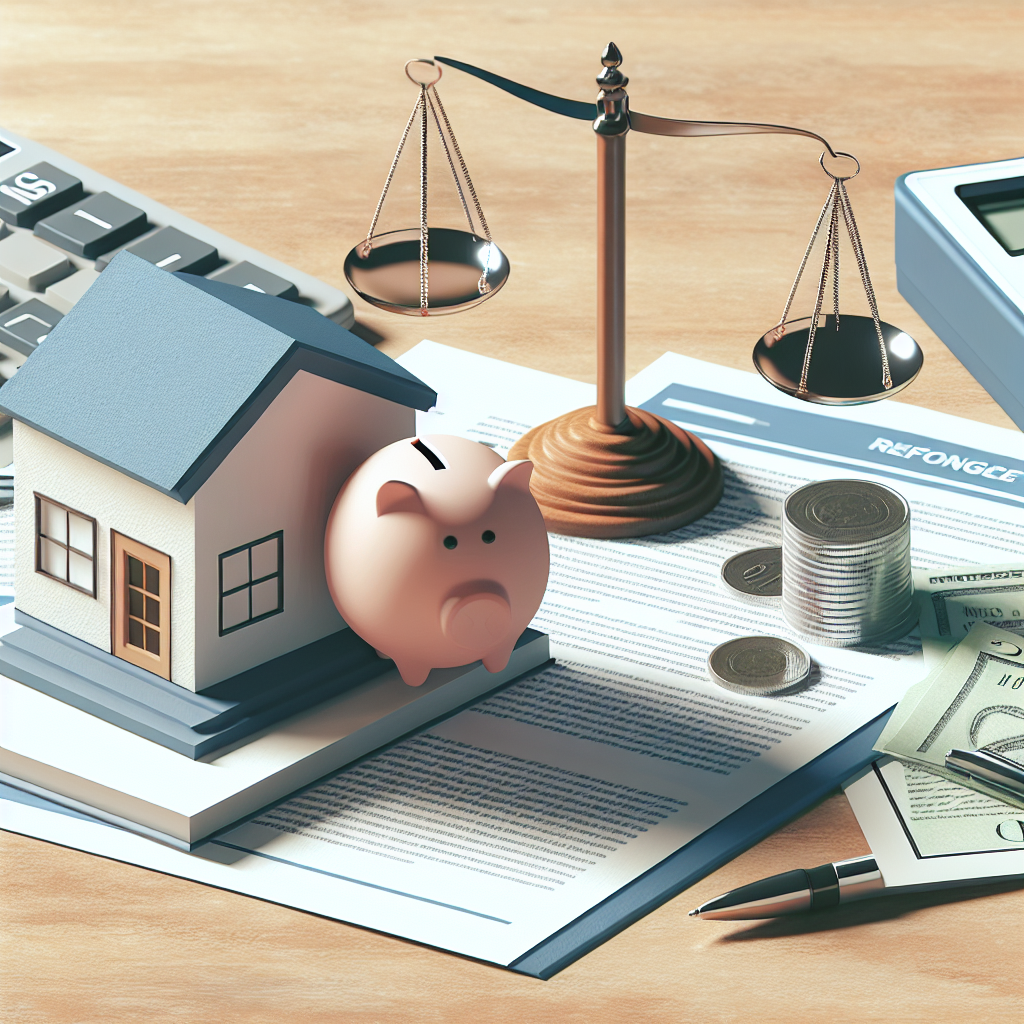When it comes to mortgage refinancing, understanding the concept of home equity is crucial. Home equity can significantly influence the terms you receive and the overall savings you can achieve through a refinance. In this article, we’ll explore the role of home equity in mortgage refinancing, its importance, and how it can benefit homeowners.
What is Home Equity?
Home equity is the portion of your home’s value that you own outright. It’s calculated by taking the current market value of your home and subtracting any outstanding mortgage balances. For example, if your home is worth $300,000 and you have an outstanding mortgage of $200,000, your home equity would be $100,000.
Why Home Equity Matters
Home equity is often considered an asset because it can be leveraged in various ways, including mortgage refinancing. Here are a few reasons why home equity is essential in the refinancing process:
-
Lower Interest Rates: Home equity can often lead to better interest rates on refinancing options. Lenders view homeowners with higher equity as lower risk, which can translate to significant savings over the life of the loan.
-
Cash-Out Refinancing: Home equity allows homeowners to take a cash-out refinance. This means you can refinance your mortgage for more than you owe, taking the difference as cash. This is particularly useful for funding home improvements, paying off high-interest debt, or covering unexpected expenses.
- Improved Loan Terms: When you have substantial equity in your home, lenders may offer more favorable terms, such as reduced closing costs or the ability to avoid private mortgage insurance (PMI).
How to Calculate Your Home Equity
Calculating your home equity is relatively straightforward. Here’s how you can do it:
-
Estimate Your Home’s Current Value: Use real estate listings, consult with a real estate agent, or hire an appraiser to determine your home’s current market value.
-
Subtract Your Mortgage Debt: Take the current market value of your home and subtract any remaining mortgage balances or liens. The formula looks like this:
Home Equity = Current Market Value – Outstanding Mortgage Balance
Understanding Loan-to-Value Ratio (LTV)
The loan-to-value ratio (LTV) is another vital factor to consider when refinancing. It is the ratio of your mortgage amount to your home’s appraised value. Lenders use this ratio to assess risk, and it’s calculated as follows:
LTV = (Outstanding Mortgage Balance / Current Home Value) x 100%
A lower LTV ratio often results in better refinancing terms. Aim for an LTV of 80% or lower to qualify for competitive rates and to avoid PMI.
Benefits of Refinancing with Home Equity
1. Access Cash for Investments
A cash-out refinance allows you to tap into your home equity, providing funds for investments such as purchasing rental properties or funding college tuition. These investments can help diversify your financial portfolio and add to your long-term wealth.
2. Consolidate Debt
Home equity can be a powerful tool for debt consolidation. By refinancing your mortgage, you can pay off higher-interest debts, like credit cards or personal loans, consolidating them into your lower-rate mortgage. This not only simplifies payments but can also save you money in interest charges.
3. Home Improvements
Investing in home improvements can increase your home’s value and enhance your living space. Using your home equity to fund renovations can lead to a higher resale value, ultimately yielding a return on investment.
Potential Risks of Leveraging Home Equity
While home equity offers numerous benefits, it’s essential to understand the potential risks involved:
1. Increased Debt
Taking cash out against your home increases your overall mortgage debt, which can lead to financial strain if not managed wisely.
2. Market Fluctuations
Home values can fluctuate due to market conditions. If your home’s value decreases, you may end up owing more than your home is worth, leading to negative equity.
3. Foreclosure Risk
Using home equity without a clear repayment strategy can increase the risk of foreclosure if you struggle to make your mortgage payments.
Conclusion
Home equity plays a critical role in mortgage refinancing, offering homeowners several opportunities to save money, consolidate debt, and make investments. Understanding how to calculate and leverage your home equity is key to making informed financial decisions. However, it’s equally important to weigh the potential risks against the benefits to ensure a secure financial future. If you’re considering refinancing, consult with a mortgage professional to assess your options based on your specific financial situation and goals.

